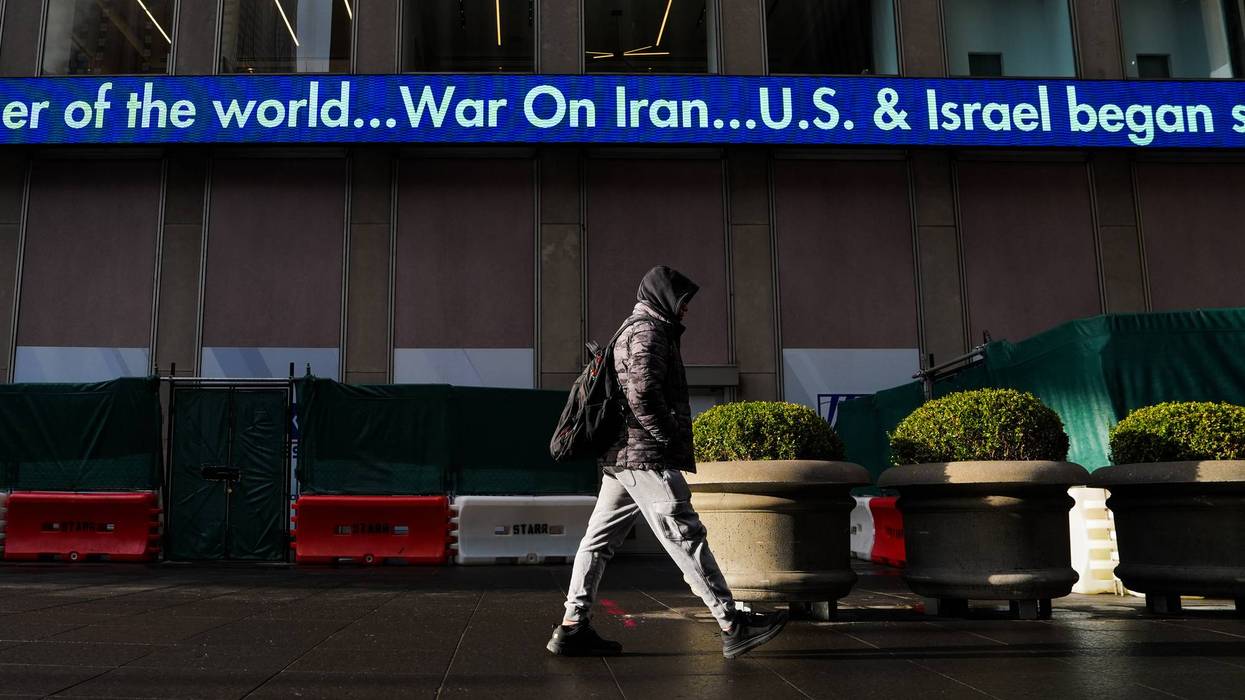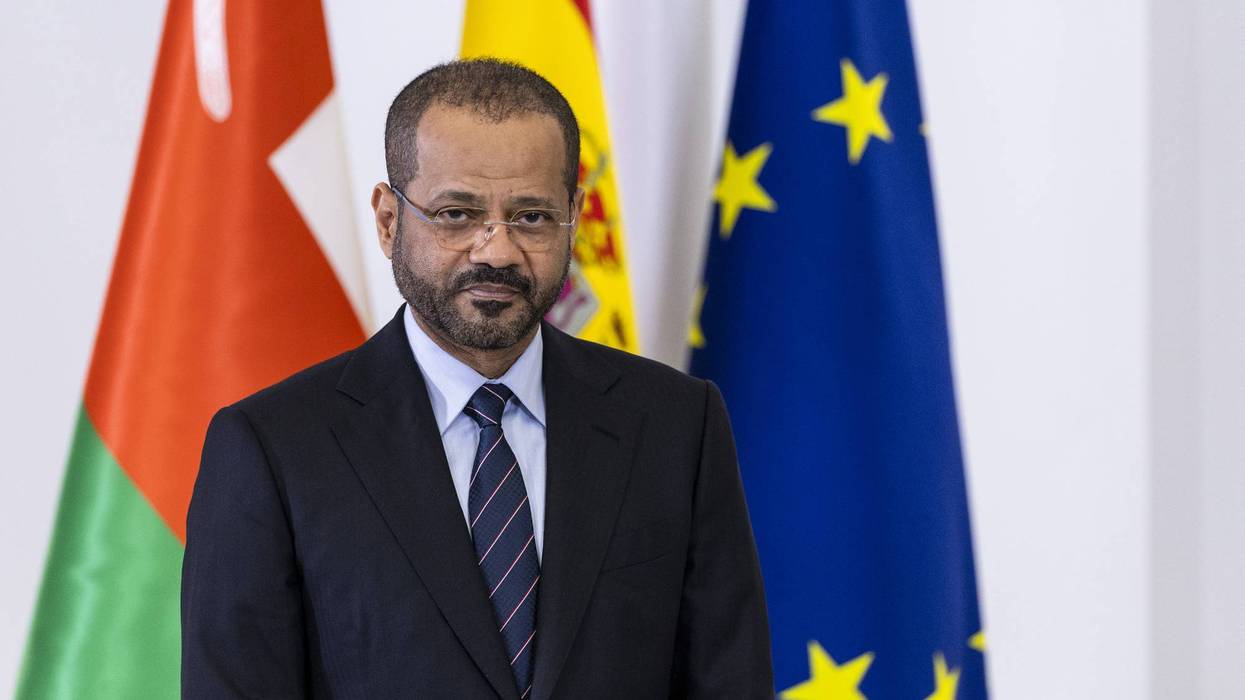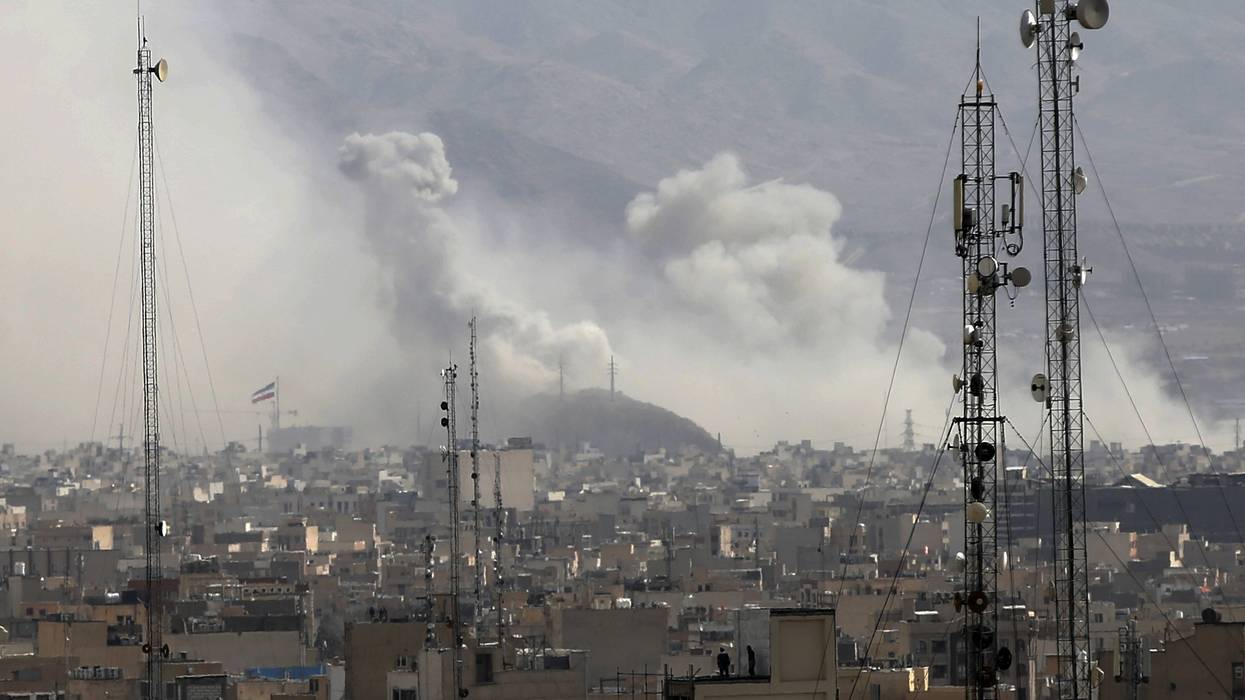December, 17 2009, 12:51pm EDT

For Immediate Release
Contact:
(202) 466-3234,Joe Conn,Rob Boston,Sandhya Bathija
Pennsylvania County Agrees to Remove Religious Symbols From Courthouse Lawn
Luzerne County Courthouse Display of Nativity Scene and Menorah Violated Constitution, Civil Liberties Groups Advised
WILKES-BARRE, Pa.
The Luzerne County Commissioners have agreed to remove two separate
religious displays - a creche and a menorah - from the lawn of the
Luzerne County Courthouse after receiving a letter from Americans
United for Separation of Church and State and the American Civil
Liberties Union of Pennsylvania.
In the Dec. 11 letter, the two civil liberties groups informed the
county that the displays are an unconstitutional government endorsement
of religion.
"The reason the law forbids government endorsement of religion is
because, in the words of Justice O'Connor, 'endorsement sends a message
to nonadherents that they are outsiders, not full members of the
political community, and an accompanying message to adherent that they
are insiders, favored members of the political community,'" said Mary
Catherine Roper, staff attorney for the ACLU of Pennsylvania. "The
courthouse - the symbol of the law in Luzerne County - is an especially
important place to respect the diversity of beliefs in our community."
Added the Rev. Barry W. Lynn, Americans United executive director,
"I expect to see religious symbols at houses of worship, not government
buildings that serve Americans of all faiths and none. I am pleased
that the Luzerne County Commissioners realized that these displays
violated the Constitution and took action to remove them."
The creche and menorah are owned and maintained by Luzerne County.
The civil liberties groups were alerted to the presence of the
religious emblems by local members of the Northeast Pennsylvania (NEPA)
Freethought Society, including Justin Vacula and Rodney Collins.
"I'm happy the Luzerne County Courthouse will be taking down its
religious displays and will no longer communicate a message of
supporting religion to every person passing the courthouse," said
Vacula. "The Luzerne County Courthouse is now a place for everyone."
The law on public displays is clear, according to the letter sent to
the Luzerne County Commissioners on Dec. 11. A government entity may
only erect religious symbols if they are part of a broader secular
display. The religious elements cannot stand alone, as they do in this
case. Alternatively, the government may also declare a space an open
public forum, where any individual or group is welcome to put up a
display.
NEPA Freethought Society is represented by Roper and Witold Walczak
of the ACLU of Pennsylvania and Ayesha N. Khan and Richard B. Katskee
of Americans United.
More information about the issue, including photos and a copy of the December 11 letter, is available at: https://www.aclupa.org/legal/legaldocket/northeastpennsylvaniafreet.htm
Americans United is a religious liberty watchdog group based in Washington, D.C. Founded in 1947, the organization educates Americans about the importance of church-state separation in safeguarding religious freedom.
LATEST NEWS
'The Behavior of Rogue States': Global Revulsion as US and Israel Launch War on Iran
"The attacks on Iran by Israel and the United States are illegal, unprovoked, and unjustifiable," said Jeremy Corbyn, an independent member of the UK Parliament.
Feb 28, 2026
Elected officials, activists, and experts around the world voiced horror and outrage Saturday as US President Donald Trump and Israeli Prime Minister Benjamin Netanyahu jointly launched an illegal war on Iran with the explicit goal of toppling the nation's government, sparking chaos throughout the Middle East.
The wave of bombings, expected to mark the beginning of a wider assault, spurred airspace closures and flight cancellations across the region as countries braced for the fallout. While European leaders offered milquetoast responses to the unlawful military attack and Canadian and Australian officials openly endorsed it, leftist politicians and others unequivocally condemned the US and Israel as the aggressors.
"The attacks on Iran by Israel and the United States are illegal, unprovoked, and unjustifiable," said Jeremy Corbyn, an independent member of the British Parliament and former leader of the UK Labour Party. "Peace and diplomacy was possible. Instead, Israel and the United States chose war."
"This is the behavior of rogue states—and they have jeopardized the safety of humankind around the world with this catastrophic act of aggression," Corbyn added. "Our government must condemn this flagrant breach of international law, and urgently pursue a foreign policy based on justice, sovereignty, and peace."
Progressive International co-founder Yanis Varoufakis, the former finance minister of Greece, echoed Corbyn's criticism of the US and Israel as "rogue states."
"Israel and the USA," he wrote on social media, "have started a war not against Iran but against the whole world. We stand with Iranians, with humanity, against the notion that Israel and the US can bomb anyone their fancy takes them to bomb."
Badr Albusaidi, the foreign minister of Oman and the mediator of recent US-Iran talks, said he was "dismayed" by news of the US-Israel attacks on Iran, which were quickly followed by reports of horrific atrocities. Albusaidi said hours before the bombs started falling on Iran that a diplomatic resolution was within reach.
"Active and serious negotiations have yet again been undermined," Albusaidi lamented on Saturday. "Neither the interests of the United States nor the cause of global peace are well served by this. And I pray for the innocents who will suffer. I urge the United States not to get sucked in further."
Leftist Colombian President Gustavo Petro said he believes "President Donald Trump has made a mistake today" and implored the "helpless United Nations" to "convene immediately" in response to the US-Israel attacks and retaliation by Iran and allied groups in the region.
Iran vowed a "crushing" response to the US-Israeli onslaught, firing drones and missiles at Israel and pledging to hit US military installations in the region.
Al Jazeera reported that "Iran has targeted United States assets across the Gulf Arab states in retaliation for a huge joint attack on Iran by the US and Israel, as the region’s worst fears of being ignited in the flames of a sustained war loom."
"The Iranian government on Saturday confirmed its attacks on several targets, according to the Fars news agency, including Bahrain, Kuwait, Qatar, and the United Arab Emirates, where US airbases are hosted," the outlet noted.
Keep ReadingShow Less
Oman's Foreign Minister Said US-Iran Deal Was 'Within Our Reach.' Then Trump Started Bombing
"The Omani FM decided to go public," suggested one observer, "so that the American people knew that peace was within reach when Trump instead opted for war."
Feb 28, 2026
Hours before President Donald Trump announced his decision to bomb Iran and pursue the overthrow of its government, the foreign minister of Oman appeared, in person, on one of the most prominent US television news programs to declare that a diplomatic breakthrough was possible.
"I can see that the peace deal is within our reach," Badr Albusaidi, the mediator of recent talks between the US and Iran, told "Face the Nation" host Margaret Brennan on Friday. "I'm asking to continue this process because we have already achieved quite a substantial progress in the direction of a deal. And the heart of this deal is very important, and I think we have captured that heart."
Pressed for specifics, Albusaidi said that Iran committed during the talks to renounce the possibility of amassing "nuclear material that will create a bomb"—a pledge that Trump claimed Iran refused to make as part of his justification for Saturday's strikes.
"This is something that is not in the old deal that was negotiated during President Obama's time," Albusaidi said, referring to the 2015 nuclear accord that Trump ditched during his first term in the White House. "This is something completely new. It really makes the enrichment argument less relevant, because now we are talking about zero stockpiling. And that is very, very important, because if you cannot stockpile material that is enriched, then there is no way you can actually create a bomb, whether you enrich or don't enrich. And I think this is really something that has been missed a lot by the media, and I want to clarify that from the standpoint of a mediator."
"There is no accumulation, so there would be zero accumulation, zero stockpiling, and full verification," the Omani foreign minister continued. "Full and comprehensive verification by the [International Atomic Energy Agency]."
In a social media post following the interview, Albusaidi reiterated that a deal "is now within reach" and implored all parties to "support the negotiators in closing the deal." Prior to Saturday's attacks, additional US-Iran talks were scheduled for next week.
Watch the full segment, which critics highlighted as evidence that the US-Israeli attacks on Saturday were aimed at forestalling a diplomatic resolution:
Trita Parsi, executive vice president of the US-based Quincy Institute for Responsible Statecraft, wrote in response to Albusaidi's remarks that "the Omanis are famously cautious."
"The Omani FM going on CBS to reveal what has actually been achieved in the negotiations is quite unprecedented. And what has been achieved is significant—Trump can indeed declare victory. Listen to this segment—it goes way beyond what Obama achieved," Parsi wrote. "But everything indicates that Trump won't take yes for an answer. That he will start a war of choice very soon."
"Which is probably why the Omani FM decided to go public," Parsi added. "So that the American people knew that peace was within reach when Trump instead opted for war."
According to one survey released earlier this month, just 21% of Americans support "the United States initiating an attack on Iran under the current circumstances."
Keep ReadingShow Less
Iran Demands Emergency United Nations Action Amid 'Criminal Aggression' by US, Israel
"Just as we were ready for negotiations, we are more ready than ever for defense," said the Iranian Foreign Ministry.
Feb 28, 2026
As US and Israeli bombs fell on Tehran, the Iranian Foreign Ministry on Saturday vowed that the country would defend itself against "criminal aggression" and implored the United Nations Security Council to take emergency action.
The ministry said in a lengthy statement that Saturday's attacks, which US President Donald Trump characterized as the start of a massive military operation aimed at overthrowing the Iranian government, represent "a violation of Article 2, Paragraph 4, of the United Nations Charter and a clear armed aggression against the Islamic Republic of Iran."
"The Islamic Republic of Iran notes the grave duty of the United Nations and its Security Council to take immediate action to confront the violation of international peace and security," reads the ministry's statement, which noted that the US and Israeli assault began "in the midst of a diplomatic process."
"The Iranian people are now proud that they did everything they could to prevent war," the statement continues. "Now is the time to defend the homeland and confront the enemy's military aggression. Just as we were ready for negotiations, we are more ready than ever for defense. The armed forces of the Islamic Republic of Iran will respond to the aggressors with authority."
Ben Saul, the UN special rapporteur on human rights and counterterrorism, condemned US-Israeli "aggression against Iran" in a social media post, calling the assault a "violation of the most fundamental rule of international law—the ban on the use of force."
"All responsible governments should condemn this lawlessness from two countries who excel in shredding the international order," Saul added.
Keep ReadingShow Less
Most Popular


